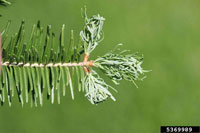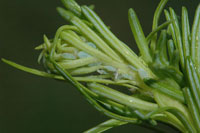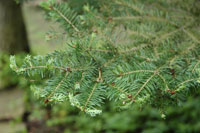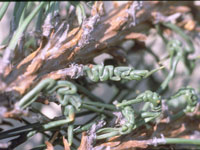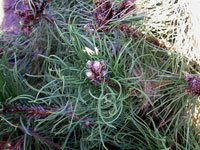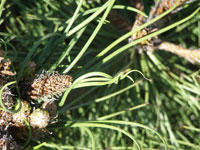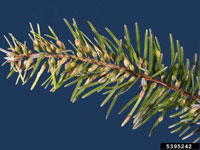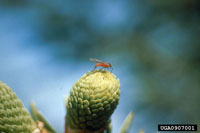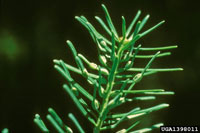Extension > Garden > Diagnose a problem > What's wrong with my plant? > Evergreen Trees and Shrubs > Fir > Distorted or deformed needles
Fir > Needles > Distorted or deformed needles
1 of 3
Balsam twig aphid
Mindarus abietinus
- Twisted and curled needles at the end of shoots
- Damaged needles may be whitish or silvery
- Feeding produces honeydew which can glue needles together
- Damage is mostly cosmetic
- More information on Balsam twig aphid
2 of 3
Growth regulator herbicide damage
(e.g. 2,4D or MCPP)
- Shoots may wilt or curl
- Needles stunted, twisted or misshapen but remain green
- If damage is severe, needles turn brown and fall off, branches may die
- Symptoms occur a few days to several weeks after herbicide application
- Dead or dying weeds expressing similar symptoms may be present nearby
- More information on Growth regulator herbicide damage
3 of 3
Balsam needle midge
Paradiplosis tumifex
- Galls appear in June as swelling near the base of individual needles
- Galls initially green, and can turn needles yellow by mid-summer
- Infested needles can die and drop off in autumn
- Thin foliage, especially in upper crown; particularly apparent in small trees
- Adults are tiny, orange and mosquito-like
- More information on Balsam needle midge



